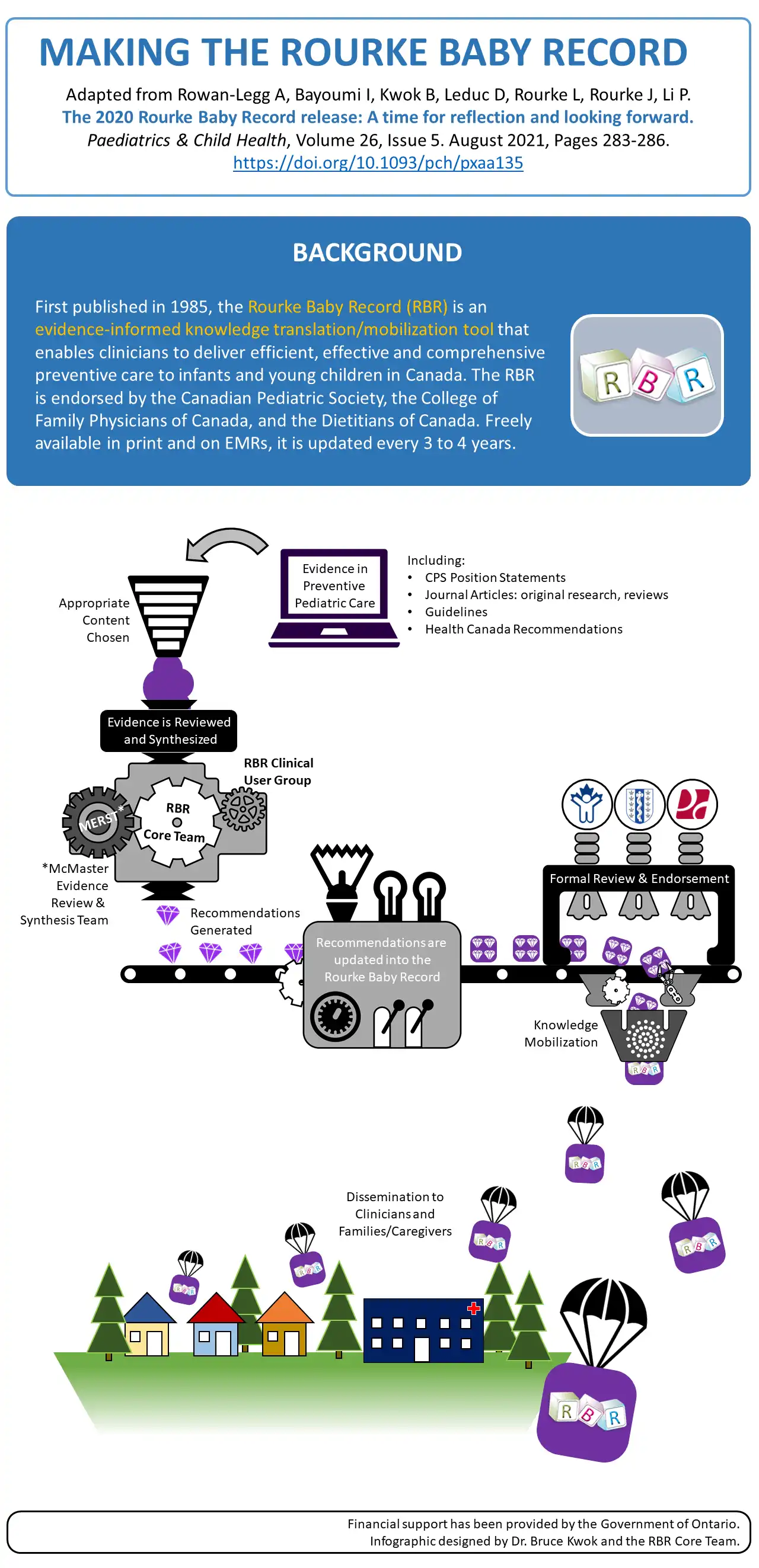Literature has been critically appraised throughout the life of the RBR. The time required to update the RBR has increased in step with the growing body of new literature, which creates a substantial challenge for busy clinicians.
Scientific rigour has been obtained by adding clinician epidemiology expertise to the core RBR team (Dr Evelyn Constantin from 2005 to 2011, Dr Patricia Li from 2011 onward, and Dr Imaan Bayoumi from 2020 onward). Recent collaboration with the McMaster Evidence Review and Synthesis Team (MERST) has further increased rigour, transparency, and documentation. Funding from the Government of Ontario has enabled the periodic updates to keep the RBR current.
For the 2024 edition of the RBR, the searches, selection of appropriate evidence, and a methodology review of relevant each study was led by McMaster Evidence Review and Synthesis Team (MERST), McMaster University, Hamilton, Ontario.
We then used a modified Shekelle approach for the critical appraisal of the literature. Shekelle PG, Woolf SH, Eccles M, Grimshaw J. Clinical guidelines: developing guidelines. BMJ. 1999 Feb 27;318(7183):593-6. doi: 10.1136/bmj.318.7183.593. PMID: 10037645; PMCID: PMC1115034.)
Further detail is found in the Literature Reviewed page and in the Frequently Asked Questions (FAQ): How is information chosen for inclusion in the Rourke Baby Record.
The level of evidence then establishes the strength of recommendation for each RBR item, which is reflected on the RBR Guides using the longstanding and clinician-friendly print scheme of Good, Fair, and Inconclusive evidence/Consensus.
Each new RBR edition is then subjected to extensive external review by the RBR Clinical User Group, the endorsing organizations, and key stakeholders prior to endorsement, release, and dissemination.

